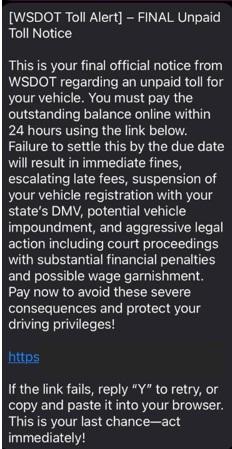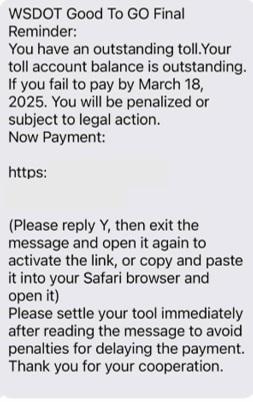OLYMPIA – Good To Go! is asking people to be cautious as scammers are impersonating toll agencies nationwide. They are attempting to trick people into making payments and sharing their banking information.
Good To Go! is aware of fraudulent text messages claiming to be from Good To Go! and linking to a convincing fake website mirroring the official one for that payment. The text messages were not sent by Good To Go!. Good To Go! never sends texts asking for payment. See examples of the scam texts below.
People who suspect they’ve received a scam text should not click on any of the links. Instead, they should log into their account as any information Good To Go! would send about a toll bill will also be visible on your account. If you do not have a Good To Go! account Good To Go! would not send you a text. Good To Go! never asks customers to pay on websites other than Good To Go! and does not charge additional fees to make a payment.
Good To Go! encourages anyone who received a fraudulent text to file a complaint with the FBI Internet Crime Complaint Center or with the Federal Trade Commission. Be sure to include the phone number or email address from where the message was sent, and the website listed in the text of the message.


